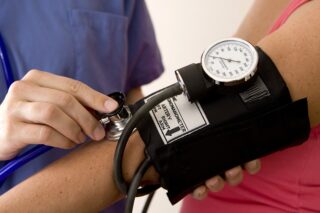
Approximately one-quarter of all strokes suffered in the United States every year is a recurrent stroke. Learn what makes these strokes so dangerous and how you can monitor your risk factors.
The dangers posed by recurrent strokes
A stroke is one of the most dangerous medical conditions that you can contract, and it is the fifth-leading cause of death in the United States. What many patients don’t understand, however, is that the risk isn’t over once you’ve recovered from your first stroke. Suffering an initial stroke puts you at a higher risk for having another one in the future, even up to ten years after your first. While anyone can suffer from a stroke, the condition affects older adults at much higher rates when compared to other age groups.
Once you have had a stroke, the same risk factors that may have caused it can continue to put you in danger of a recurrent episode. The next time it happens, the parts of your brain which were damaged by the stroke may not have had sufficient time to completely recover, increasing the likelihood that another stoke will have deadly consequences. After your initial stroke, it’s more important than ever that you work to control and monitor your risk factors, such as AFib.
Why patients with AFib must carefully monitor their stroke risk
AFib is an exceedingly common heart arrhythmia, and its most dangerous side effect is that it carries a significant increase of stroke risk. When the heart beats out of sequence, as is the case with AFib, there is a greater chance of developing a blood clot which can prevent blood from getting to the brain.
Protecting yourself from suffering a recurrent stroke
Part of recovering from a stroke is being vigilant about mitigating your risk factors. It’s vital to take steps such as monitoring your blood pressure, eating a heart-healthy diet, abstaining from tobacco use and limiting alcohol use, and getting adequate exercise (once you’ve been cleared by your doctor).
One of the most important steps you can take is to visit a cardiac electrophysiologist if you have AFib. Dr. Dilip Mathew of Heart Rhythm Consultants, P.A. provides innovative treatments, such as ablation, that can permanently keep you out of AFib and drastically lower your risk of recurrent stroke. Dr. Mathew and his team have helped thousands of patients in the Tampa/Sarasota area control their heart arrhythmias. Contact us today to schedule an appointment and discuss what can be done about your risk of recurrent stroke.



